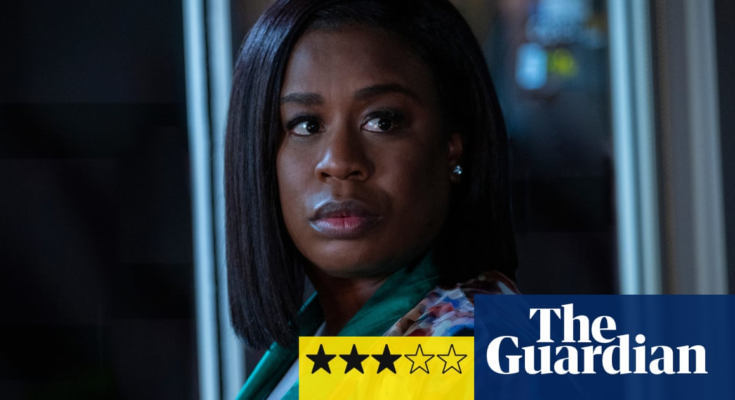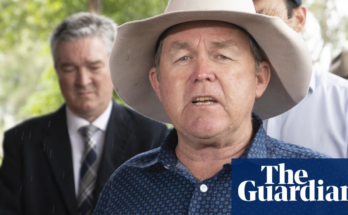The intense therapy drama is back with three extreme clients for our times and a doctor grappling with her own demons. Can she keep it together – or will her issues with boundaries bring trouble?
In Treatment is back for a fourth season after a 10-year break. We’re all in need of a new therapist now, and HBO has provided one in the form of Uzo Aduba as Dr Brooke Taylor (her first lead role since winning her second Emmy, for her performance as Shirley Chisholm in Mrs America). If you recoil slightly at the idea of such a powerhouse actor being trammelled into a role that suggests mostly expectant stillness – well, be not afraid. I cannot say much more without giving away various twists about the character, but – given that she does appear to be slightly miscast in the first episode – it’s worth noting that In Treatment has, aptly, always been about the rewards of the long haul. This revival is no exception.
We follow Dr Taylor through her sessions with three patients and her own therapist via the traditional In Treatment structure – an episode with each of them in turn, then repeating the cycle, rather than each episode covering multiple storylines in normal TV fashion. First, there is home-help aide Eladio (played so cleverly, delicately and heartbreakingly by Anthony Ramos that you cannot help but feel you are watching a career-making performance), who is either a world-class manipulator seeking drugs for an addiction or a young soul already lost in the US mental health system. It is he who gives us our first intimation of the good doctor’s potential problems with boundaries and the demons that drive her to push them.
Then there is John Benjamin Hickey doing great work with the much less finely drawn character of Colin, whose surname might as well be Zeitgeist given how many hot-button issues his writer has crammed into him. Colin is a child of hippies turned tech multi-millionaire, sentenced to five years in jail for investor fraud. He is in denial about any financial harm he has done, the violence he committed in prison and about the pervasive sexist and racist attitudes his white male self holds, which become increasingly evident during his court-mandated sessions with Dr Taylor.
He ostentatiously marvels at her success, rails against cancel culture and unwittingly proclaims his narcissism at every turn. Colin’s episodes are largely written by Zack Whedon, brother of Joss, the once-revered creator of Buffy who recently found his own previous behaviour publicly called into question, and you can only long to be a fly on the wall at their next family gathering. With any luck, at least one of them will get a standalone drama out of it and we can get the popcorn in for the fictionalised rendering.
Somewhere in between these two client extremes is 18-year-old Laila (Quintessa Swindell), brought in by her magnificently malevolent grandmother (Charlayne Woodard) who wants Taylor to explain the difficulties “choosing to be a lesbian” will bring. Once Grandma leaves, Laila prefers to refer to herself as a sex addict but a minute’s work reveals her to be as unclear about what she really is, like any teenager with an overpowering presence constantly dictating her life’s terms.
Overall, the new series is a blunter tool than the previous three – especially those based on the two original Israeli series created by Hagai Levi, BeTipul. And it carries some of the same weakness, such as occasionally overwritten dialogue. Laila, for example, delivers a monologue about the destruction the doctor’s generation has wreaked on the world that begins with “You didn’t do shit about global warming, racism or anything” and ends with “I only have this body left to enjoy.” If teenagers really are talking like that these days – well, a fiery death for us all suddenly doesn’t seem so bad.
But, above and beyond all this, the show has Aduba. She can do the comedy moments (“You gotta be, like, 50” says Laila. “Thank you, I’m 72,” she replies), the searching intelligence – wrapped in warmth for Eladio, whetted to a keener edge for Colin, the deeper emotional moments as Taylor unravels with her own therapist and her backstory begins to reveal itself. If the whole show doesn’t add up to more than the sum of its parts, it is a lot of parts and Aduba holds them all together and makes them work. It’s worth booking your hours in again.
{{topLeft}}
{{bottomLeft}}
{{topRight}}
{{bottomRight}}
{{/ticker}}
{{heading}}
{{#paragraphs}}
{{.}}
{{/paragraphs}}{{highlightedText}}



